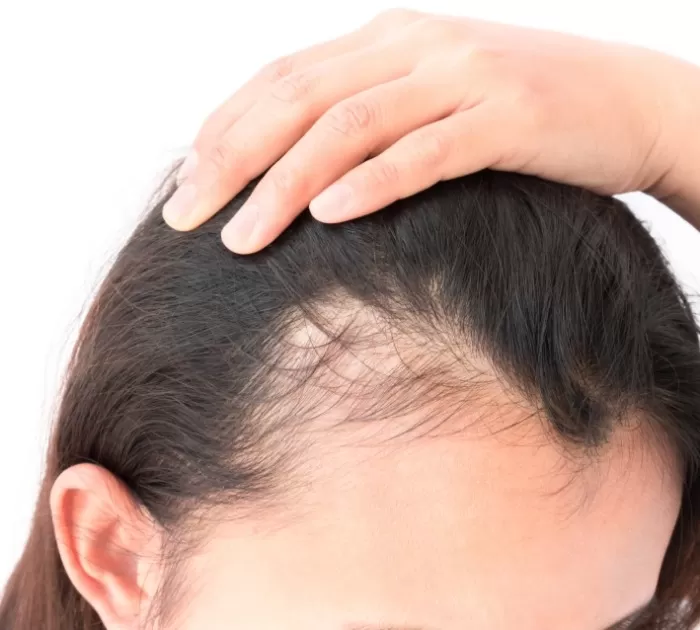Introduction
Hair loss or thinning is a common symptom during menopause and perimenopause and is primarily caused by hormonal changes. The decline in oestrogen and progesterone levels can lead to hair growing more slowly and becoming thinner. Additionally, these hormonal shifts can increase the effects of androgens (male hormones), which can shrink hair follicles, causing hair to fall out more easily.
Other contributing factors include genetics, age-related changes, stress, poor nutrition, certain medical conditions, and medications. Lifestyle factors, such as poor sleep and high stress levels, can also exacerbate hair loss.

